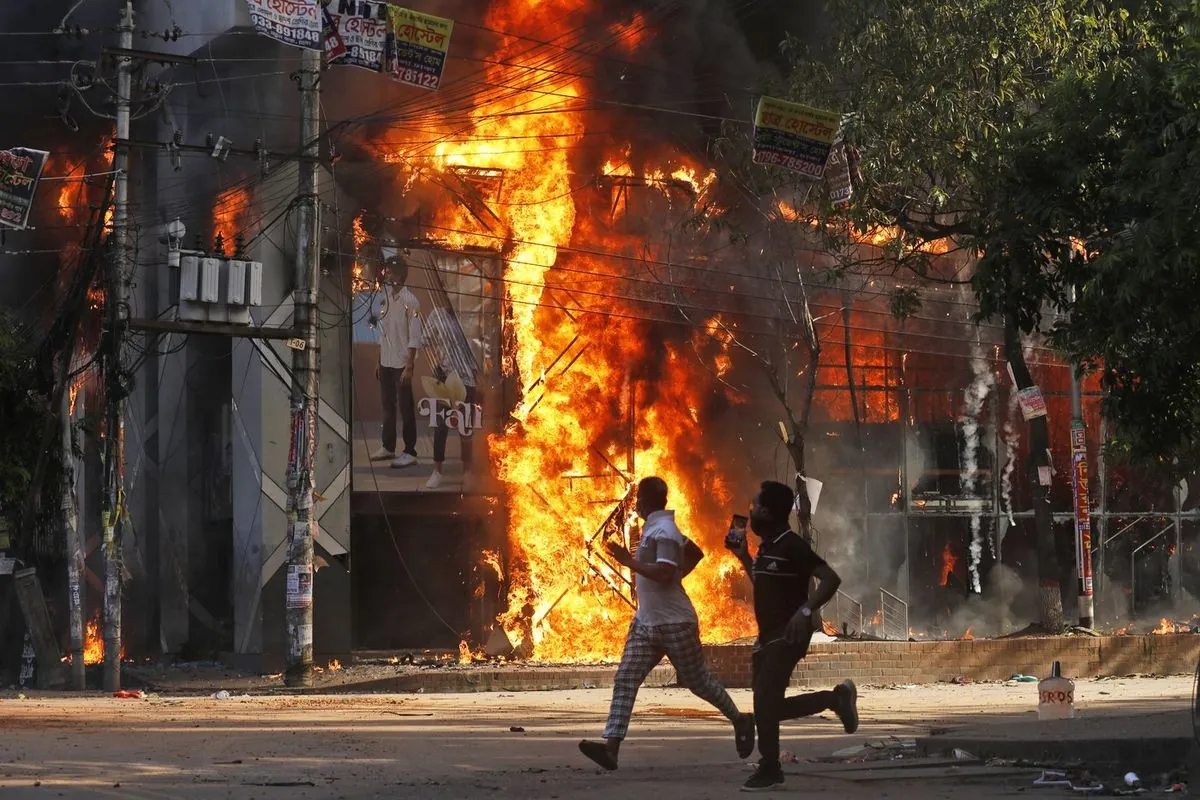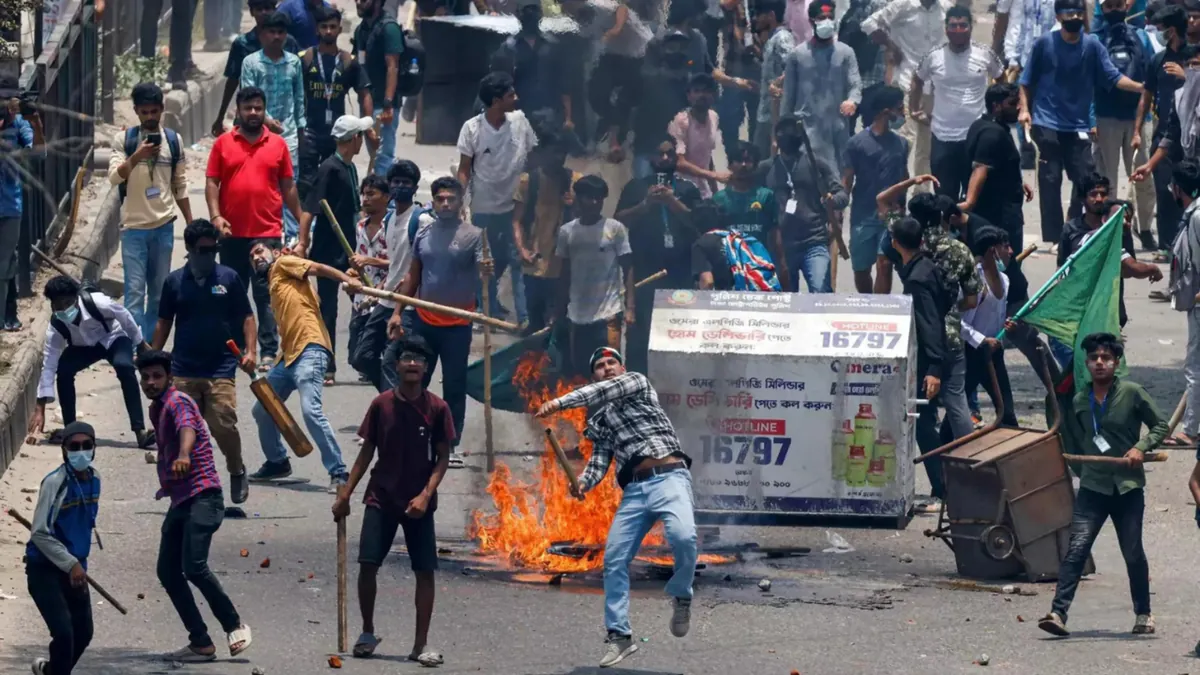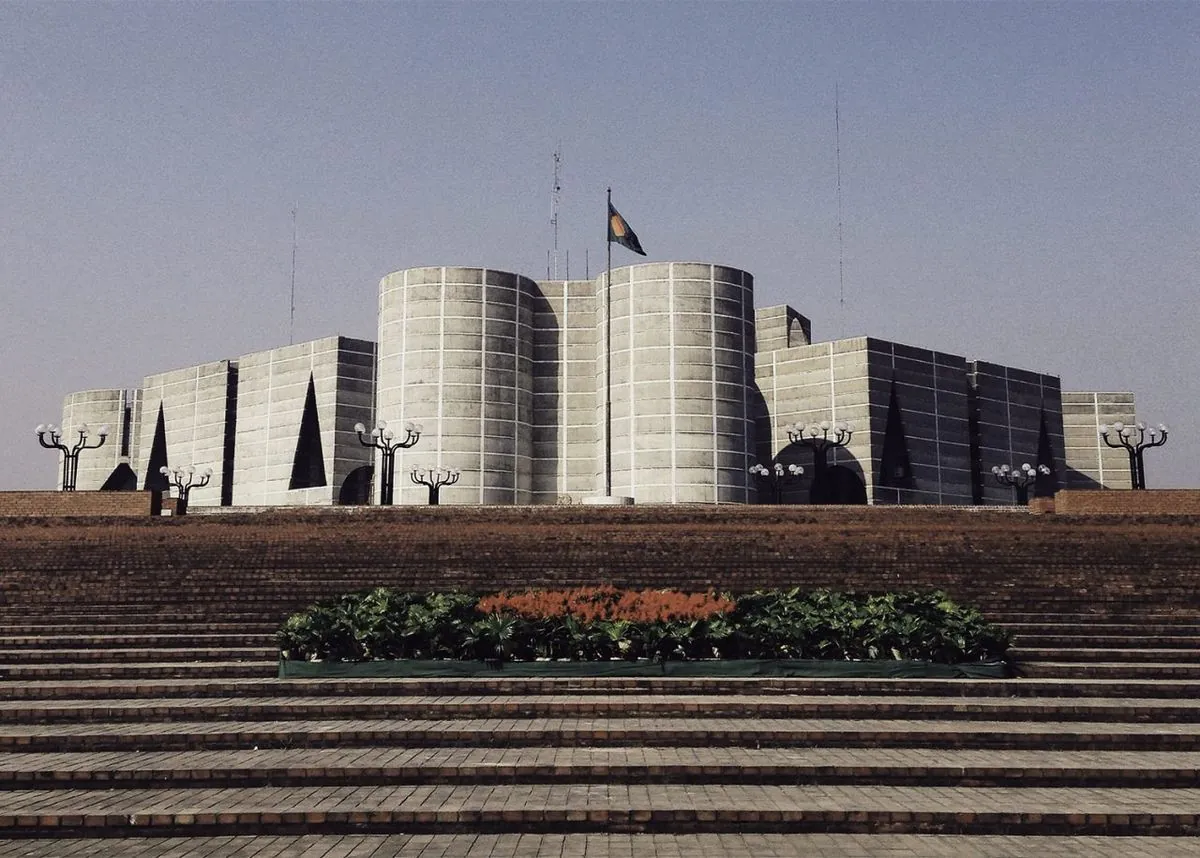Bangladesh in Transition: Hasina's Exit Sparks Hope and Uncertainty
Bangladesh experiences relative calm after Prime Minister Hasina's resignation. Protesters call for Nobel laureate Yunus to lead interim government as the nation grapples with political upheaval.

In a dramatic turn of events, Bangladesh finds itself at a crossroads following the resignation of Prime Minister Sheikh Hasina. The nation, home to over 165 million people, is experiencing a mix of celebration and apprehension as it navigates this sudden political shift.
On 2024-08-05, Hasina, who had been in power since 2009, stepped down amid intense protests. The following day, schools and businesses cautiously reopened, signaling a tentative return to normalcy. However, the absence of police and security forces in the capital led to gridlock, highlighting the fragile state of affairs.
The protests, which began as opposition to a civil service job reservation policy, evolved into a broader movement against Hasina's increasingly authoritarian rule. Bangladesh, which gained independence in 1971, has a history of political instability, including multiple military coups.

The recent unrest has taken a heavy toll. In the past month, at least 400 people lost their lives in clashes between protesters and security forces. The violence peaked on 2024-08-04 and 2024-08-05, with 99 fatalities reported.
Army Chief Gen. Waker-Uz-Zaman has called for calm and announced plans to work with political parties and President Mohammed Shahabuddin to form an interim government. However, protest coordinator Nahid Islam rejected any army-led solution, instead proposing Nobel laureate Muhammad Yunus to head the temporary regime.
Yunus, renowned for pioneering microcredit through Grameen Bank in 1983, has played a significant role in Bangladesh's development. His potential involvement reflects the country's vibrant NGO sector and its efforts to address poverty and social issues.
"We're all rejoicing — the monster who is on top of us has left. Today we are free. A new force has emerged: the young people. This is a kind of volcanic eruption."
President Shahabuddin dissolved Parliament on 2024-08-06, effectively nullifying the controversial 2024 elections. This move paves the way for forming an interim government and potentially addressing long-standing issues in Bangladesh's political system.
The United States has called for respect for democratic principles and the will of the Bangladeshi people in forming the new government. This transition occurs against the backdrop of Bangladesh's economic progress, with the country experiencing rapid GDP growth and becoming a major exporter of ready-made garments.
As Bangladesh navigates this critical juncture, it faces numerous challenges, including political corruption, human rights issues, and the looming threat of climate change. The country's future hinges on its ability to reform institutions and create a more accountable political system while maintaining its economic momentum and addressing social inequalities.

The coming days will be crucial in determining whether this political upheaval will lead to meaningful change or further instability in a nation that has made significant strides in reducing poverty and improving education access in recent years.


































